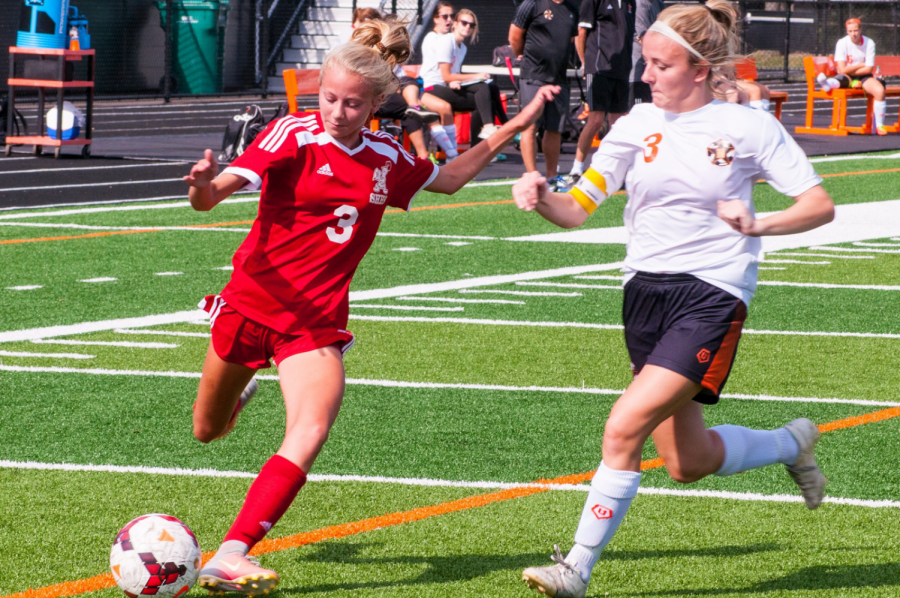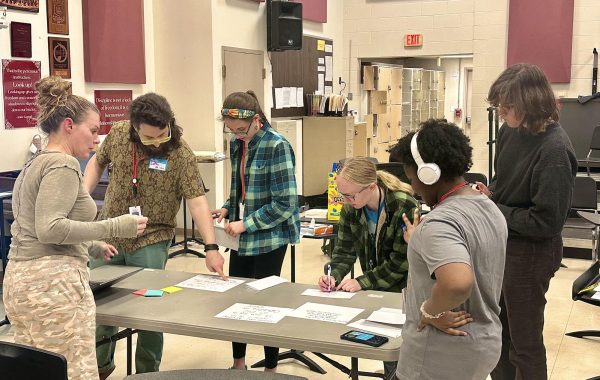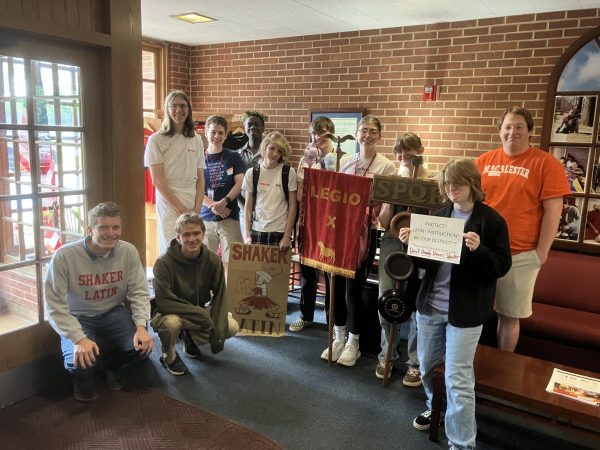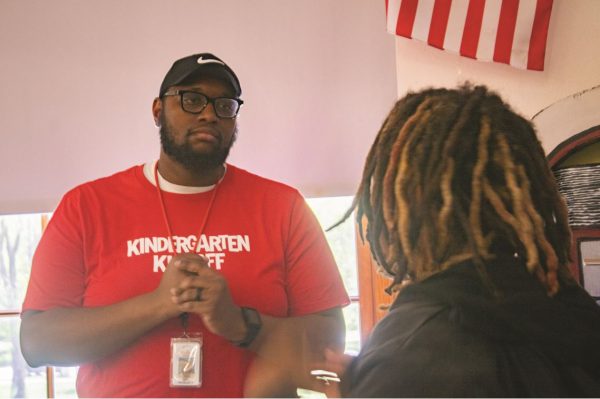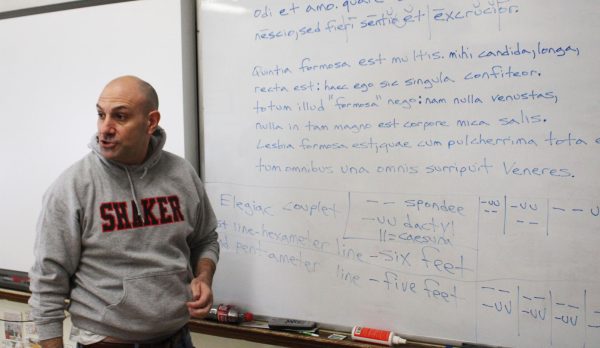No More Long Lists
College admissions offices prefer students dedicated to a select few extracurriculars with leadership roles, as opposed to long, meaningless lists of activites
The girls varsity soccer team plays Eastlake Oct. 7, 2017. Becoming a captain of a sport, such as soccer, is valued by college admissions because it shows initiative, according to Guidance Department Chairwoman Eileen Blattner.
Every year, millions of high school seniors apply to college. They fill out their applications, and when they get to the extracurricular section, stress about having enough qualifications to fill the page.
However, these students don’t have to worry about filling up a page of extracurriculars, because that’s not always what college admissions officers want.
According to Robert R. McCullough, assistant vice president for enrollment and director of undergraduate admission at Case Western Reserve University, sometimes fewer activities are OK. “For some students, a well-rounded resume works really well,” McCullough wrote in an email. “For others, being committed to a small number of activities, where they can really excel and make an impact, works better.”
Guidance Department Chairwoman Eileen Blattner, who has been working at Shaker since 1985, said that colleges like students that show leadership skills. Blattner said, “They want each student to do a few activities and be a leader in the activities, if possible.” Because initiative is valued, becoming captain of a sport or president of an organization stands out.
McCullough stated, “Colleges often value leadership skills and experiences. Having experience leading an organization, taking responsibility for its success and motivating others to achieve are all qualities we’d love to have in our students. And leadership isn’t always attached to a title — sometimes it’s less obvious.” He added that not every student will be a leader, and that it is important to have people in a variety of roles within a community.
Colleges are trying to build a diverse student body and want to see students who are unique, not students who try every activity they can because they think that is what admission officers want to see. Blattner advised students to show deep involvement in activities they enjoy and avoid joining activities for their senior year only. She said that committing to an activity and participating in it for all four years of high school is more meaningful than joining a new activity each year so it can be added to a list of extracurriculars.
“Certainly dedication and commitment to an activity is valued, but at the same time, students should take advantage of the opportunity to explore activities while in high school. While that may not translate to a long-term commitment, it might give a student a chance to experience new things and make new friends,” McCullough stated.
Junior Charlotte Lo agreed that it is valuable to participate in different extracurriculars.“The stuff that I do now, I’ve been doing for a long time, so I do it just because I started it and I like it,” she said. Lo said that people she knows are either really dedicated to one activity or they try out a lot of activities, but it depends on the person.
Whether a student commits to an activity at the high school for one year — or for all four — school activities help to cultivate pride in the high school and can even show how connected a student could be on a college campus. According to McCullough, colleges know that students that are more engaged in their communities are more successful. According to The Professional Counselor Journal, an electronic journal of the National Board of Certified Counselors, high school students with a high number of extracurriculars of 15 or more hours a week, were more likely to be enrolled in two-year and four-year institutions than students with low numbers of extracurriculars of less than four hours a week.
McCullough writes that each part of the application matters, and that admissions offices acknowledge that some students are unable to participate in as many activities because they have to take care of younger siblings or work to support family finances.
Applying to college is a very stressful time, because students have to worry about grades, extracurriculars, essays and financial aid. Blattner said that students often stress about their extracurriculars because it appears to be something that they can control. It’s difficult for students to change their GPA by their senior year but they can join a few clubs to add to their list of activities.
“I think as long as I enjoy the extracurricular activities I’m doing, it doesn’t matter. It doesn’t matter if I have a lot or if I have, like, just a couple on there,” said junior Tristan Murphy. Blattner would agree and told students to pick activities that they enjoy and are interested in.
Blattner advised students to choose several activities of interest and to pick at least one that helps other people. She gave examples like Youth Ending Hunger, a club that helps to feed those without reliable access to food, and Take Action, a tutoring club where members visit elementary schools to help students understand and complete their schoolwork. Said Blattner, “Find a few things that you really like and be the best you can be at them.”
Comment using your Facebook, Yahoo, AOL or Hotmail account


